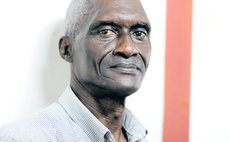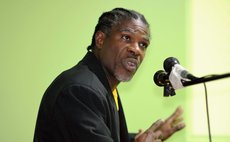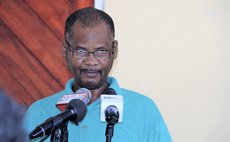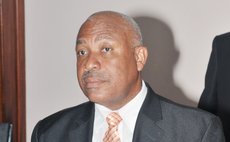Caribbean Court of Justice, Privy Council and Sovereignty
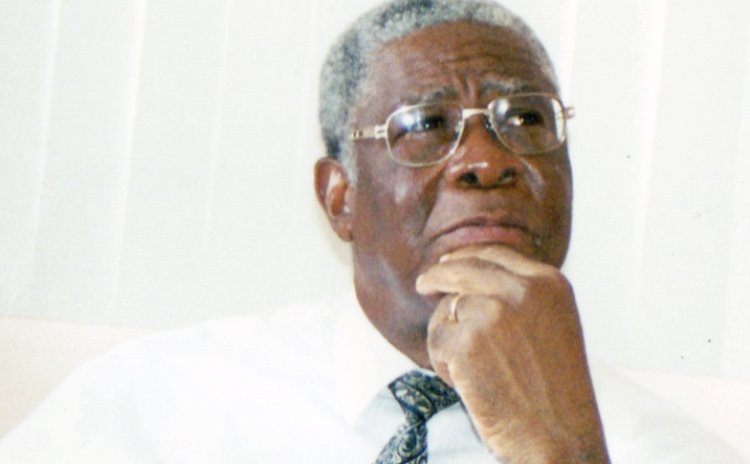
Rev. Dr. William W. Watty
The latest attempt at clarification of the matter of the Privy Council's communication with respect to its attitude to Appeals emanating from Jurisdictions in the Caribbean Region was an article that appeared in an issue of the Chronicle of July 25, 2014, written by Dr. Eisenhower Douglas, economist. The lengthy exposition was apparently designed to educate the reading public on two issues, viz. to demonstrate the importance for National Sovereignty of a local or regional Court as a final Court of Appeal, and to provide the vital evidence of the disposition of the Judicial Committee of the Privy Council, as the final Appellate Jurisdiction, towards cases originating in Jurisdictions situated in the Caribbean.
Let me deal with the second purpose first. Dr. Douglas cited as evidence an interview that took place in May 1999, in which, so he reported, the then President of the Judicial Committee of the Privy Council stated emphatically that "appeals from the Caribbean should end". Let me say, right away, that I have a difficulty in believing the report. There are too many holes in it. The writer can confirm that the Presiding Judge spoke emphatically, but he cannot divulge the name of the Judge. He cannot give the date of the interview. He is unable to describe the nature of the interview, whether it was given before a live audience or broadcasted, or whether it was an informal exchange in private conversation. Nor does he disclose whether he received the information second-hand or third-hand, or whether he was present at the interview but was not the interviewer.
Above all, the inverted commas ("......") give the case away. He includes quotations that do not match the stature of the speaker either in style or content. To their credit I must say, in all fairness, that Jurists of that eminence and distinction do not murder the mother tongue. They will not be caught dead uttering, even in private and informal conversation, the gibberish that passes for English, and written for public consumption, by West Indian graduates. If the quotations were accurate, then the speaker was clearly an imposter. If the speaker was the President of the Judicial Committee of the Privy Council, then the quotation must have been a gross misrepresentation.
Not the style only, but the content is unbelievable, coming as it does from a figure of such high repute. "Appeals coming from the Caribbean should end"? Give me a break. In my experience Jurists try to be as explicit as they can in their statements especially when they wish to be emphatic. Do Appeals come from the Caribbean or from Jurisdictions located in the Caribbean region? Furthermore, even though the learned Judge might have had his own opinions about entertaining Appeals from Jurisdictions outside the United Kingdom, he should certainly have known that, should they not be entertained by the Judicial Committee, the fate of such Appeals was no concern of his and, as President of the Judicial Committee of the Privy Council, he was quite out of place to try to circumscribe or limit our options for a replacement.
This brings me to the meat of the matter, viz. the shoddy thinking that has confounded meaningful discussion on the relationship between Sovereignty and a Final Court of Appeal. To suggest that Dominica only became truly independent when, on July 1, 2014, some kind of umbilical cord that linked us to the Mother Country was severed, is a monstrous fallacy. We were no less independent and sovereign after November 3, 1978 when, with our consent, Appeals were sent to the Judicial Committee of the Privy Council for final adjudication, than we are now that the Constitution has been amended to enable our accession to the Caribbean Court of Justice. In both cases and equally, they are designed among other things to protect the independence of the citizens against an omnipotent state that might wish to arrogate to itself rights it does not have, and to over-reach itself. The Courts in general, and the Supreme Court in particular, can have nothing whatsoever to do with Sovereignty. Their whole and single concern is for justice.
Furthermore, Sovereignty is rooted not in the nature of a decision that has been taken, but in the body with the authority and competence to take the decision. Therefore when, at the time of its Independence in November 1978, the Commonwealth of Dominica, as a Sovereign state, chose to retain the Privy Council as its Final Court of Appeal, far from being a derogation of, or a limitation on, its sovereignty, it was an Act of Sovereignty, no less then than now, when it is about to replace the Privy Council with the Caribbean Court of Justice, an institution which, like the Privy Council, lies outside its domain. The only remaining question, therefore, is whether the decision to replace the Privy Council with the Caribbean Court of Justice reflects the will of the great majority of the citizens.
To this question there is still no answer, for not only was it never tested in a National Referendum, but the Mandate was never sought in a General Election. This is what makes the missing evidence of official communication from the Privy Council regarding Appeals from the lower and foreign Jurisdictions a critical issue; for it might then have been argued that there was no option. Short of that piece of evidence it can fairly and rightly be said that the Caribbean Court of Justice, as the Final Appellate Jurisdiction for Dominicans, was imposed upon the people of the Commonwealth of Dominica.

